自閉症のお子さん(渡くん)をアメリカで育てられたお母さんのブログ、
「渡の宝箱」から。(ブログはこちら)
この方は、言葉がうまく操れない、コミュニケーションが難しい渡くんのために
Voice4Uというコミュニケーションツールまで作ってしまうすごい人です。
「この子にとって何が一番必要か」を必死で考え、工夫し、
行動を起こす保護者の方を見るたびに、
そしてその子が幸せになれるような道具を開発したり、
教材を作ったり、学校を作ったり、
そんな
一人の子どもへの親の愛情が、
結果的に他の多くの子どもへ届くのを知るたびに、
親の子どもへの愛情ほど強いものはない・・・と感じます。
あ、今日はそのブログで、
『学習障害で高校退学を命じられた生徒がハーバード大学へ。大事な親の6つのステップ』
という記事をfacebookで見ました。
アメリカといっても、学習障害者にとって天国ではありません。
”見えない障害”なだけに、やはり、無理解からくるいろいろな壁に親子でぶつかっていかなくては、
学校を卒業することも困難です。(それでも日本よりはずっと進んでいますが)
3月21日のPBSニュースで取り上げられていたエピソードです。
高校を中退して路上生活を送っていた少年が、
自分が学習障害であるという診断を受け、正当な学習の権利を取り戻し、
高校を卒業、その後大学へ進み、さらにはハーバード大学大学院に進学しました。
そこで、PBSがその少年に、「学習障害がある子どもをもつ親へのアドバイスは?」
と尋ねたところ、このように答えたそうです。
1.子どもに対して低い価値観を決して持ってはいけない。
2.彼らの正しい評価を得るべし。
3.自分の子供の障害を熟知し、彼らによくあった環境ツールをあたえる
4.障がいのある子供と共に連携して、彼らがまちがっているのではないことをよく理解するべし。
5.決して諦めない。
6.忍耐強く、立ち直り、理解するべし!
ブログの作者は、自分の経験からも
子育てをする中で、親の役割が高校を卒業するまでと
その後では変わると書いています。
義務教育期間中は子どものために親が学校に配慮や支援を強く要求していかなくてはいけない、
しかしその後、大学進学後は親ではなく、生徒である子ども自身が自分への支援を
大学側に訴えなくては大学が動かないと述べています。
しかし、18才までにひどく自己肯定感が下がってしまっている場合、
とてもそれができないと。
子どもの能力が低いわけではないのに、
認められないことで、自己肯定感を下げてしまうことが、
どれだけ子どもの人生に影響しているかを考えると、
「自分の言葉に気をつけなくては」、と改めて思います。
下は、ダニエル君のもっと詳しいエピソード。PBSからコピペ。
彼のLDは、ディスレクシアとADHDであったようです。
「なぜ自分が勉強できないのかわからない」まま高校2年生で勉強をあきらめました。
その後、大学生のガールフレンドと一緒にいたいがためにあこがれの大学の講座を
受講。彼女に教科書を読み上げてもらって勉強。
大学に入学願書を出したらなんと合格!その後、ようやくLDという診断を受け、
ADHDのサポートの他、教科書読み上げツールなども手に入れ、
最終的に大学の最優秀者に与えられる大学院への奨学金を手に入れたのです。
(原文)
Daniel Paris was at wit's end. He had just entered sophomore year of high school, and he was still struggling to read. Paris knew it was more of an effort for him to read than his peers, but he had no idea why. He was frustrated and fell further and further behind.
"I just didn't process the information as well," Paris explained. "It was taking me so long to get to the end of a sentence that by the time I got to the end, I'd forgotten what the sentence was originally about."
Like many kids struggling with learning disabilities, Paris was frustrated. But because no one had flagged him to be evaluated and he had not been diagnosed, Paris didn't know why he wasn't getting it. Before he finished sophomore year, he dropped out and was living on the streets of his hometown, Los Angeles.
He fell into a bad crowd and started abusing drugs and alcohol. "We did some pretty bad stuff. I was seeing things that still give me nightmares," he said.
After one of his friends was clubbed in the back of the head and killed, Paris realized something had to change. "There was just something that snapped in me," he said. "I needed to go back to school."

Paris also credits his grandfather -- who was a teacher -- for the inspiration it took to complete his high school diploma at an alternative education program. It wasn't until then that he was evaluated for learning disabilities. He was identified to have multiple, including dyslexia, as well as the diagnostically separate attention deficit hyperactivity disorder (ADHD).
Attending college was never in his life plan, but he was a lifelong fan of the University of Southern California (inherited, he said, from his grandfather).
Paris started dating a girl who attended a local community college, and he enrolled in a psychology class to spend more time with her. She helped him with his homework assignments and read his textbooks aloud for him. Eventually, he ended up applying to USC as a sophomore transfer student, and to his surprise, he was accepted.
"I went home that day and I framed my acceptance letter -- spent like all the money I had in my wallet, in my pocket, and bought a frame for that, because I figured that was a pinnacle, that was like, going to be the peak moment of my life," he said.
After a rough start at USC, Paris sought out help for his disability and was set up with an academic support counselor, an emotional support counselor, medication and an ADHD support group. He also began using a screen reader with auditory software that transforms textbooks into audio files he can hear while he reads.
The other key to his success was the relationships he struck up with his psychology professors, including Karen Hennigan. She worked with him on his senior year thesis and encouraged him to join the honors program. After that, he ended up making the wall of scholars for the top students at the university and was awarded a $10,000 graduate scholarship.
"It's just like one accolade after another," Paris said. "As fast as everything snowballed down, my life snowballed up just for sticking in there."
Paris was accepted into Harvard's Graduate School of Education and began classes last fall. His goal is to give back to people who have struggled with similar learning disabilities and cognitive impairments.
"I want to be one of those people that's going to go out there -- whether it's change something systematically or going on the ground level and one-life-at-a-time," he said. "I just know that whatever I do, I want to give more people the opportunity to do what I've been able to do."
Paris has already started down that road. Read his advice for students and parents currently struggling with learning disabilities here.











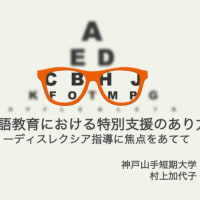
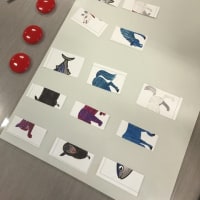
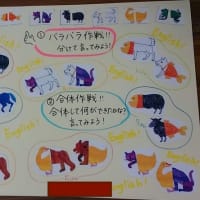

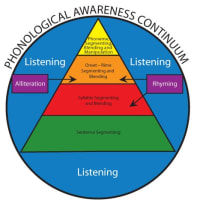
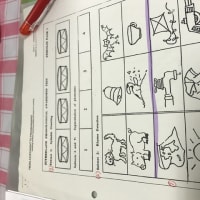

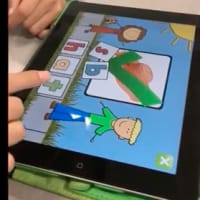
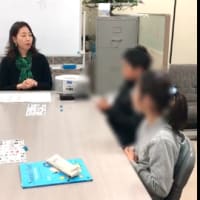
※コメント投稿者のブログIDはブログ作成者のみに通知されます